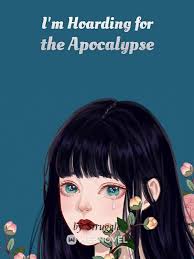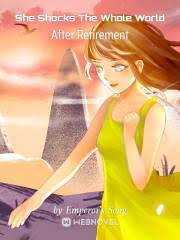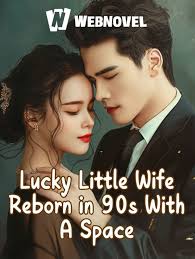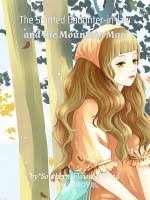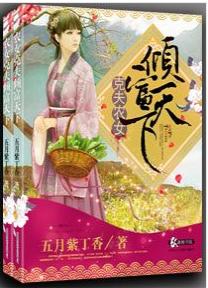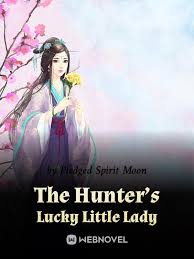The Story in 3 Sentences
After dying alone in the second year of a brutal apocalypse due to apathy and exposure, Du Yue is reborn into her past self with full memory of her tragic end.
Armed with foresight and a mysterious pocket dimension inherited from her mother, she frantically sells all her assets to hoard food, medicine, tools, and survival gear before the world collapses.
Her meticulous preparation not only ensures her own survival but positions her as an indispensable figure to others, including the enigmatic He Xing, who sees her as nothing less than a god in human form.
Why It Stands Out
1. The Hoarder’s Heartbeat
Unlike typical apocalypse stories that glorify combat or scavenging, this novel centers on the quiet, obsessive urgency of preparation—turning grocery runs and warehouse deals into high-stakes drama. Du Yue’s anxiety isn’t portrayed as weakness but as hard-won wisdom, making every canned good and roll of toilet paper feel like a lifeline.
2. Romance Woven Through Survival
The relationship between Du Yue and He Xing avoids melodrama; instead, it grows from mutual respect in a world stripped of illusions. He doesn’t “save” her—she’s already self-sufficient—and he doesn’t dominate her narrative. Their bond forms because he recognizes her strategic mind and resilience, not her beauty or vulnerability.
3. Psychological Realism in Collapse
The novel doesn’t just depict zombies or storms; it explores how isolation, betrayal, and resource scarcity erode human empathy. Du Yue’s first death wasn’t from monsters but from being abandoned—making her second life a study in trust, boundaries, and the emotional cost of self-reliance.
Characters That Leave a Mark
There’s He Xing – the male lead who views Du Yue not as a damsel but as a divine architect of survival, relying on her foresight and logistics to navigate the chaos with quiet reverence.
You’ll meet Chen Hua, who in Du Yue’s past life appeared as a desperate acquaintance begging for a ride and supplies, embodying the moral ambiguity of those who seek help without offering loyalty.
And Du Yue? They’re the one who redefines strength—not through violence, but through the relentless, almost obsessive act of preparation, turning hoarding into a philosophy of care and control in a world designed to strip both away.
The Flaws Fans Debate
Some readers argue the pacing drags during extended shopping or inventory sequences, where pages are spent detailing supply acquisitions that feel repetitive rather than revelatory.
Others note that while Du Yue is refreshingly independent, secondary characters occasionally fall into archetypes—either loyal allies or outright traitors—with limited moral gray zones.
A recurring critique is the underdeveloped nature of the apocalypse’s origin; the cataclysm remains vague, which some see as a missed opportunity for deeper worldbuilding or thematic resonance.
Must-Experience Arcs
Ch. 1–50: Rebirth and the First Hoard – Du Yue wakes from death, liquidates her life, and begins stockpiling with feverish urgency, establishing her pocket dimension and testing its limits while the world remains blissfully unaware.
Ch. 280–320: The Siege of Trust – As resources dwindle in the outside world, desperate survivors converge on Du Yue’s hidden base; alliances form and fracture, forcing her to choose between compassion and self-preservation.
Ch. 600–620: Fight With All Your Strength – In the final confrontation, Du Yue and He Xing face a coalition of warlords and mutated threats, culminating in a battle where her hoarded supplies become weapons, shields, and symbols of hope.
Killer Quotes
“What you are is a blip on a glorious path. An extra that isn’t even all that well developed. You’ll appear and make some inconsequential waves.”
“To He Xing, she was a god and the key to surviving the apocalypse.”
“In the second year of the apocalypse, Du Yue died alone, killed by apathy and exposure to extreme weather.”
Cultural Impact
The novel sparked a wave of “apocalypse prep” memes on BookTok, with readers joking about buying extra rice “just in case Du Yue is right.”
It became a benchmark in the “female-led survival” subgenre, often recommended alongside titles like Reborn in the Apocalypse for its focus on logistics over romance.
Fan art depicting Du Yue surrounded by towering stacks of canned goods and medical kits went viral on Webnovel’s community boards, symbolizing quiet resilience in uncertain times.
Final Verdict
Start Here If You Want:
A survival story where intelligence and preparation trump brute force.
A romance that respects the protagonist’s autonomy and doesn’t derail her mission.
A psychological exploration of trauma, rebirth, and the ethics of self-interest in collapse.
Study If You Love:
Narratives that reframe traditionally “feminine” acts—like organizing, storing, and nurturing—as radical survival strategies.
Stories that use reincarnation not for power fantasy but for emotional and tactical recalibration.
Apocalyptic fiction that critiques societal fragility through the lens of individual preparedness and moral choice.
Avoid If You Prefer:
Fast-paced action with constant zombie battles or military tactics.
Plots where the female lead depends on a male savior for protection or direction.
Worlds with detailed mythologies or sci-fi explanations for the end times—this novel keeps the apocalypse grounded and human-scaled.
